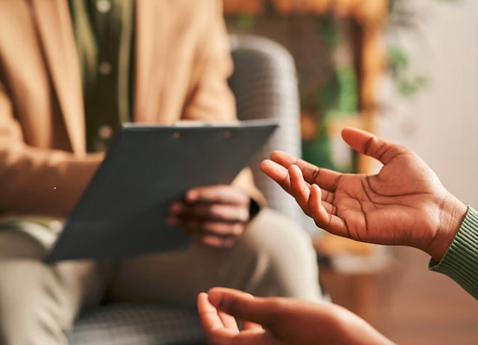
Starting couples counseling can feel like a big step — and it is. Whether you’re seeking support for communication struggles, rebuilding trust, or just trying to feel more connected, walking into that first session can bring a mix of hope, nerves, and uncertainty. The good news? You don’t need to have it all figured out before you begin.
Here’s what you can expect from your first couples counseling session, and how to make the most of it.
⸻
1. A Safe, Neutral Environment
The counselor’s office — whether in person or virtual — is a neutral space where both partners are encouraged to speak openly. A trained couples therapist is not there to take sides or declare who’s “right” or “wrong,” but rather to help both people feel heard and understood.
Expect the therapist to set some basic ground rules for respectful communication and to explain confidentiality policies. This helps create emotional safety for honest conversation.
⸻
2. Getting to Know You
Much of the first session is about gathering context. Your therapist will likely ask questions about:
•How long you’ve been together
•What brought you to counseling now
•Your communication patterns
•Major stressors (e.g. finances, parenting, infidelity)
•Individual mental health or life events affecting the relationship
Some therapists may meet with you as a couple for the full session, while others might schedule brief individual time with each partner either during the first meeting or shortly after. This helps the therapist understand your unique perspectives and any personal experiences shaping the relationship dynamic.
⸻
3. Defining the Problem(s)
You don’t need to have a perfect explanation for what’s wrong — that’s part of the therapist’s job to help you sort through. But you will likely be asked to describe what’s felt difficult, painful, or disconnected lately.
Sometimes couples have different views of the problem, and that’s okay. For example, one partner may say, “We never talk anymore,” while the other says, “We’re constantly arguing.” The therapist helps you begin to unpack those differences.
⸻
4. Setting Goals Together
Toward the end of the session, the therapist may help you start setting some shared goals. These might be:
•“We want to communicate without it turning into a fight.”
•“We want to rebuild trust after a betrayal.”
•“We want to feel like a team again.”
These goals can evolve over time, but starting to name them early gives direction to the work ahead.
⸻
5. What You Won’t Do in Session One
You probably won’t dive deep into solving long-standing issues right away. Therapy is a process, not a quick fix — and it takes time to build trust with your therapist and each other. Don’t be discouraged if you leave the first session without feeling “resolved.” Starting is progress.
⸻
6. Your Therapist Might Assign Homework
Depending on the therapist’s approach, you might leave with something to work on before the next session. This could be as simple as paying attention to how you and your partner communicate during the week or trying a new way of expressing appreciation.
⸻
Final Thoughts
The first session of couples counseling is less about fixing and more about beginning. It’s a time to lay the groundwork — to be honest, to listen, and to start seeing your relationship with fresh eyes and guidance.
Being willing to show up — even if you’re unsure, nervous, or skeptical — is a courageous first step toward growth. And for many couples, it marks the beginning of a stronger, more intentional connection.